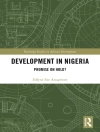The idea of national unification has long been a powerful mobilizing force for nationalist thinkers and ethnic entrepreneurs since the rise of nationalist ideology in the late 1700s. This phenomenon came to be known as irredentism. During the Cold War, irredentist projects were largely subordinated to the ideological struggle between East and West. After the Cold War, however, the international system has witnessed a proliferation of such conflicts throughout Europe and Asia.Ambrosio integrates both domestic and international factors to explain both the initiation and settlement of irredentist conflicts. His central argument is that irredentist states confront two potentially contradictory forces: domestic nationalism and pressure from the international community. Irredentist leaders are forced to reconcile their nationalist policies with pressures from the international plane. At the same time, irredentist leaders exploit perceived windows of opportunity in pursuit of their nationalist goals. Ambrosio examines in depth the past, present, and possible irredentist projects of Serbia, Croatia, Hungary, and Armenia within a theoretical and comparative framework. His conclusions yield signficant theoretical findings and important policy implications for both scholars of ethnic conflicts, nationalism, and international relations and policy makers.
Ambrosio Thomas Ambrosio
Irredentism [PDF ebook]
Ethnic Conflict and International Politics
Irredentism [PDF ebook]
Ethnic Conflict and International Politics
Cumpărați această carte electronică și primiți încă 1 GRATUIT!
Limba Engleză ● Format PDF ● Pagini 240 ● ISBN 9780313073427 ● Editura ABC-CLIO ● Publicat 2001 ● Descărcabil 6 ori ● Valută EUR ● ID 5821000 ● Protecție împotriva copiilor Adobe DRM
Necesită un cititor de ebook capabil de DRM












